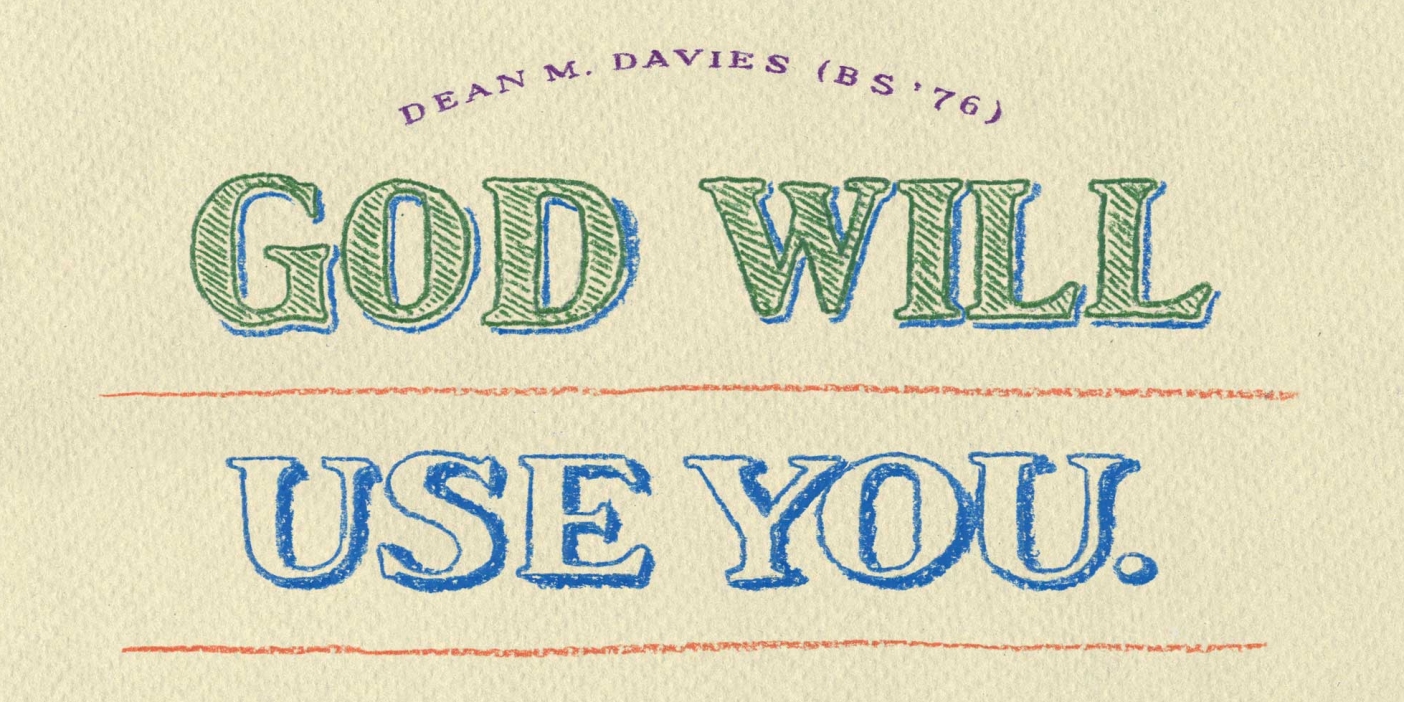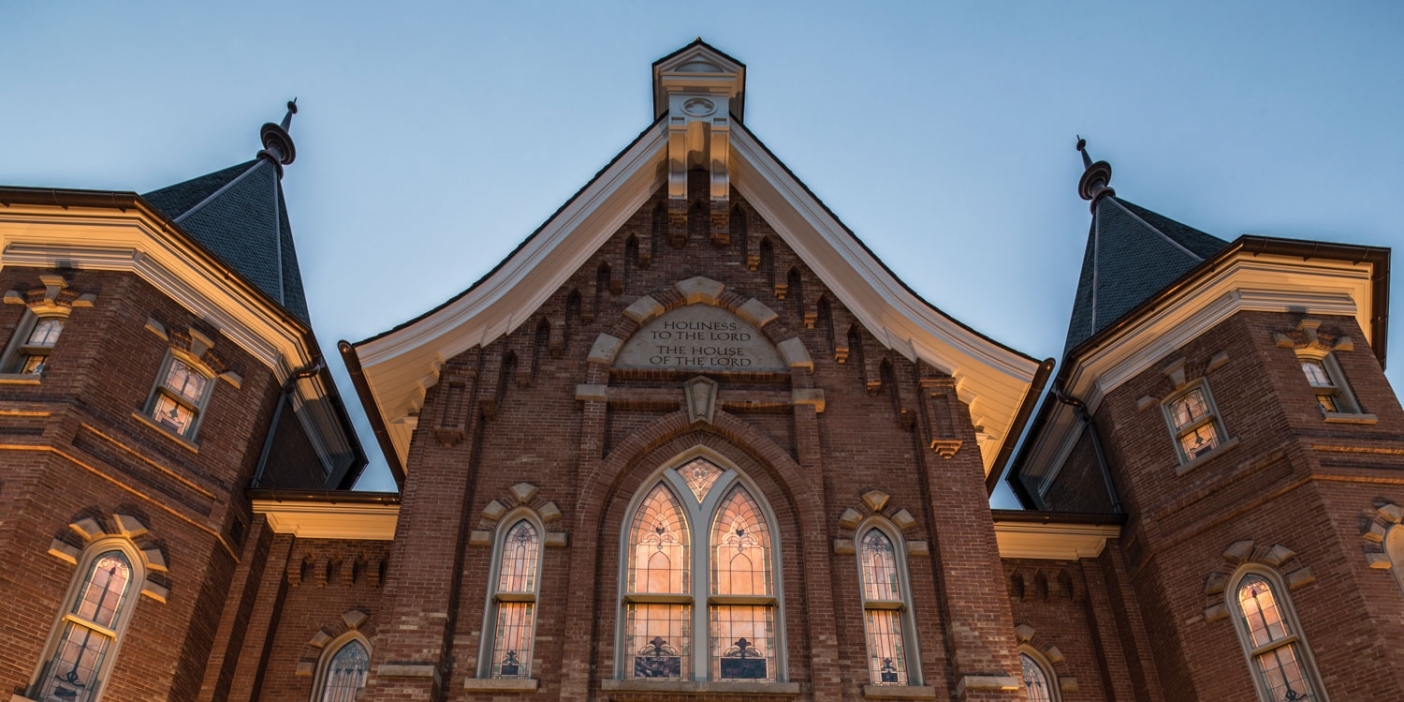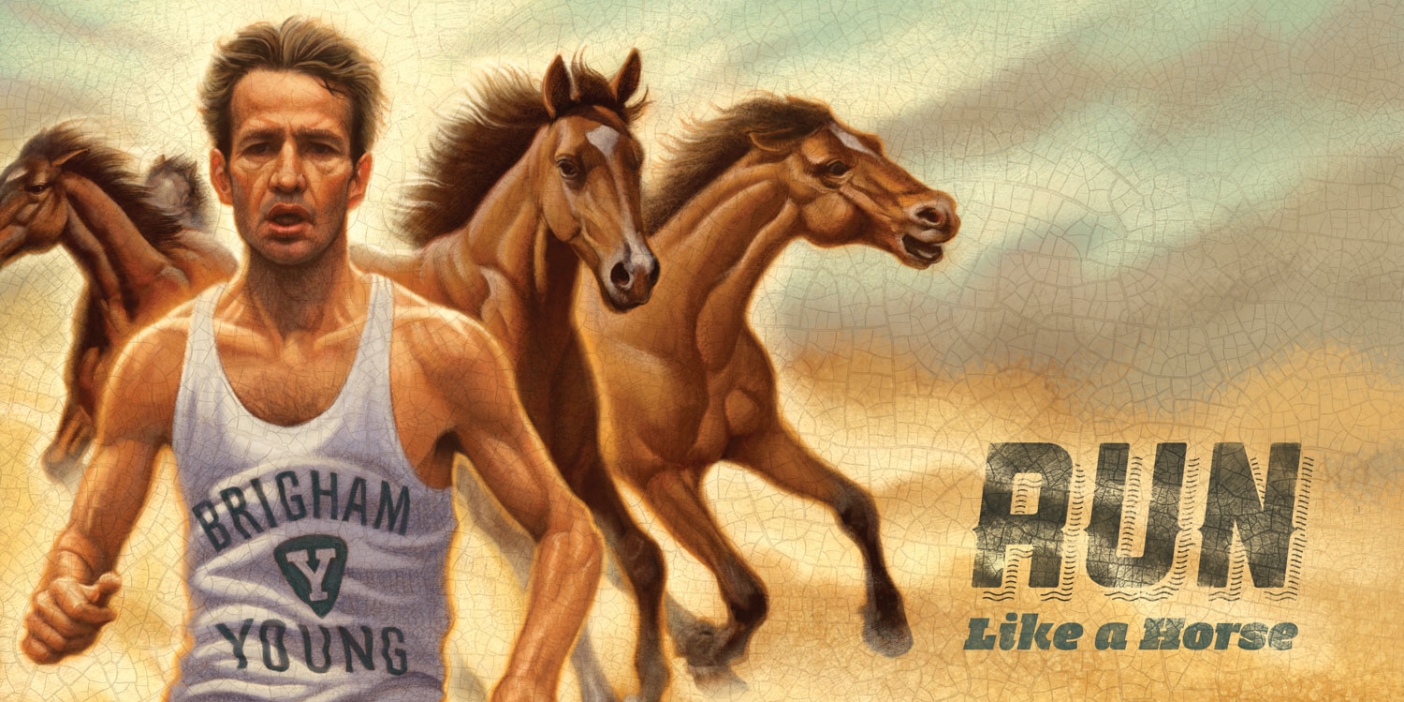On Experiments and Experience
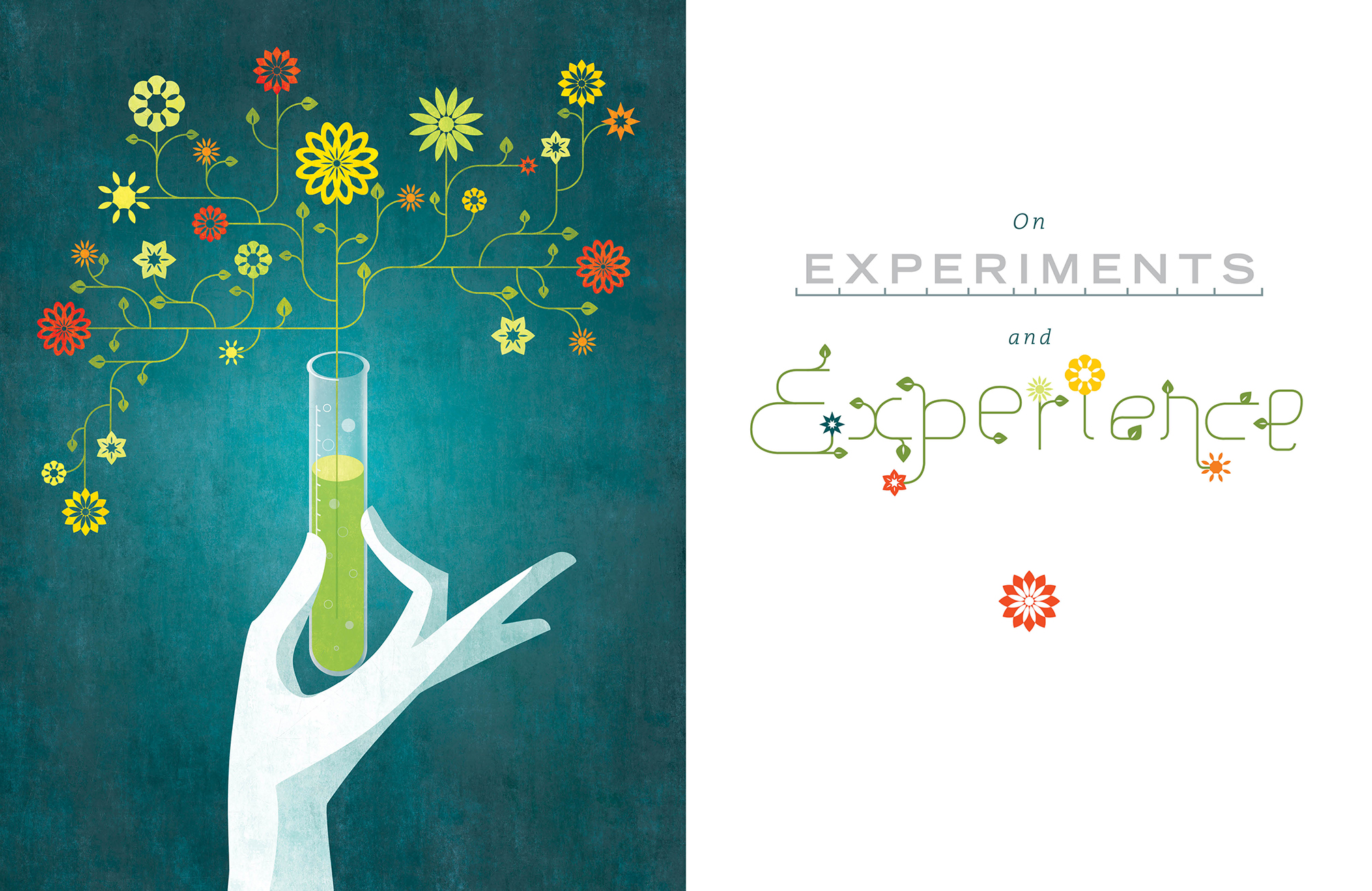
In life and the lab, trials are an essential part of exploration and discovery.
By Jennifer Burrows Nielson (BS ’88) in the Summer 2015 Issue
When I was a brand-new chemistry graduate student at the University of California, San Diego, my faculty advisor, Charlie Perrin, gave me the relatively easy task of replicating the experiments of a student who was leaving our lab. The results from that project were going to be published in a top journal in my field.
When I finished the experiments, my results were the opposite of the original findings. I repeated the experiments several times, but each time the results didn’t match—and I began to panic. My failure to replicate felt like evidence that I was terrible in the lab. I took my results to my advisor, and he was surprised. He suggested a series of modified molecules on which I could repeat similar experiments.
I worked hard. I purified materials. I read techniques in the literature. I did a mountain of experiments. I talked about ideas with my favorite chemistry friend, Julie Manning Matheson (BA ’88), and at the end of a long day I would come home and worry out loud to my husband, Daniel L. Nielson (BA ’88).
In the end what we learned was that the original results were inaccurate. Eventually, we published a paper in the same journal, retracting the first claims and proposing a new conclusion. In fact, the title changed from “Symmetries of Hydrogen Bonds” to “Asymmetry of Hydrogen Bonds.”
In the process Charlie Perrin became one of my heroes. He demonstrated that he valued learning truth over protecting his reputation. Every time I entered his office with new ideas or unexpected results, he welcomed them. He felt that even unexpected results taught us something.
I learned so much from this experience that has shaped me over the years—including that ice cream soothes my soul after a long day. More important, I learned that experiments help us gain truth, that we can become stronger from struggles, that meaningful results require a lot of time and effort, and that working with others is essential. I believe that the purpose of life experiences—which we might also call life experiments—is to help us grow and become more Christlike.
Try the Experiment
When our son Rob graduated from diapers at age 2, he got his first pair of briefs, emblazoned with the Spiderman logo. Excited, he asked, “Does this mean I can climb up walls now?” He tested his theory, and he learned he could not climb walls, but he confirmed a number of times that he could bounce off them.
Theory—in life or in the lab—is not enough. Experimenting is where theory meets reality. Experiments teach us whether a theory explains reality or needs to be revised or discarded. In religion, doctrine remains theory in our minds until we show our belief in the doctrine by acting. Amulek taught this principle to the poor among the Zoramites, exhorting them to “plant the word in your hearts, that ye may try the experiment of its goodness” (Alma 34:4; emphasis added).
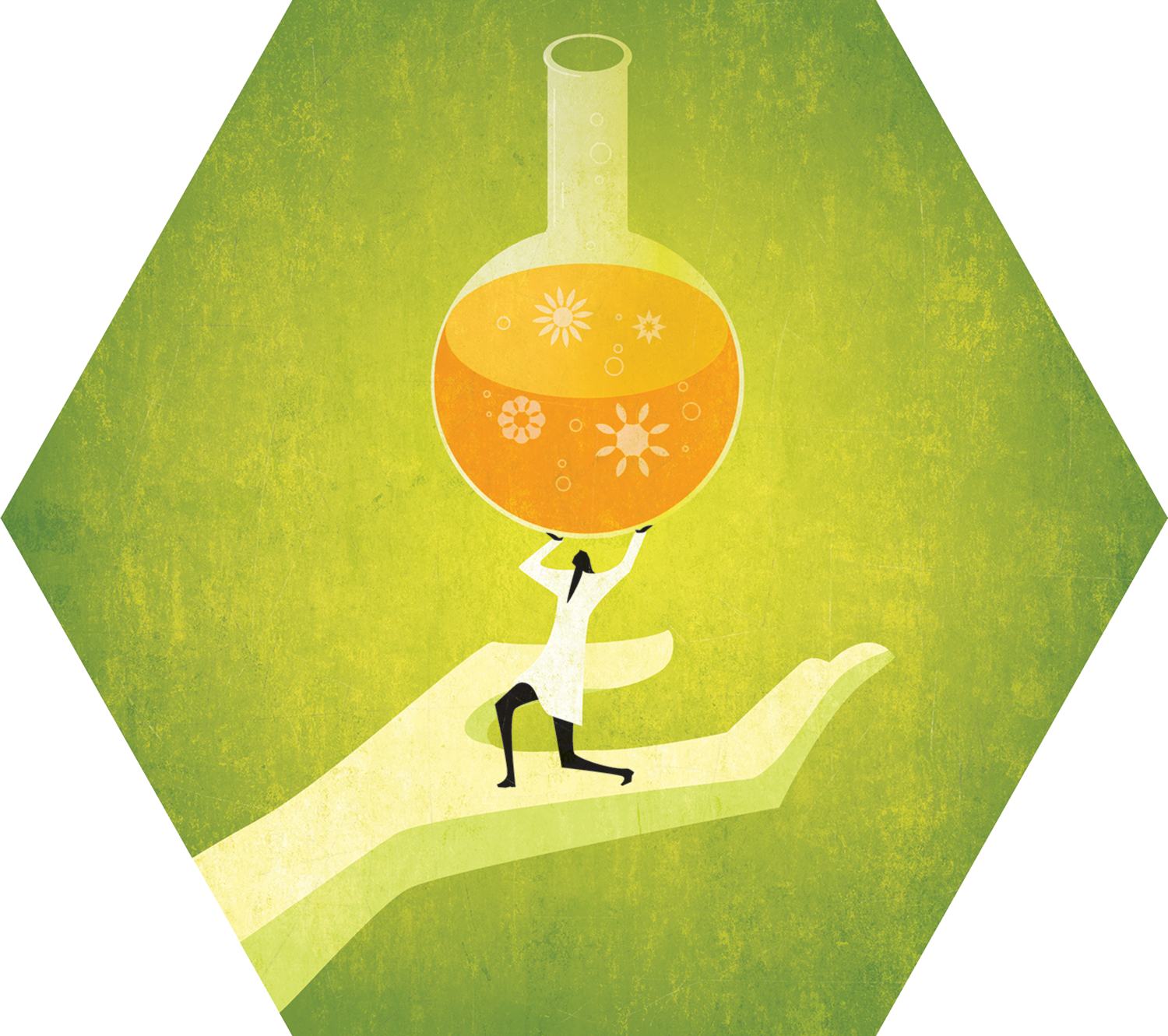
A good experiment can make learning concrete and teach us truth. I am seeing firsthand the value of experiments in my current chemistry-education research in Uganda. Last year Makerere University—the largest university in East Africa and the most prestigious in Uganda—had only two students declare chemistry as their major. The year before there was only one. What could be the reason for this? Here’s a clue: students in Uganda are required to study four to six years of chemistry before they finish secondary school, yet few of them have opportunities to learn chemistry principles through hands-on experience—through experimentation. Many secondary schools lack the adequate equipment and supplies for chemistry labs and the facilities to handle lab waste. So for most students, chemistry is pure theory and rote memorization. Consequently, many of the students come to see it as pointless and too difficult.
“The words EXPERIMENT and EXPERIENCE have the same Latin root: they both come from the word EXPERIOR, which means to GAIN KNOWLEDGE THROUGH REPEATED TRIALS.”
As I have worked in Uganda over the past few summers, I have seen the need for students to experience science hands-on to make the chemistry concepts come alive and become meaningful. My research team facilitates workshops designed to help secondary school teachers incorporate simple water-based experiments into their classes and labs. The team emphasizes exploration and experience, discovery and development.
The words experiment and experience have the same Latin root: they both come from the word experior, which means to gain knowledge through repeated trials. For most of us, the word trial represents the difficult, sometimes horrendous, experiences we have in life. But in the scientific world, the word trial has positive connotations. It refers to experiments repeated in order to learn something valuable. For example, a clinical trial can be used to study the effects of a new drug or medical procedure. In science, then, the word trial is not associated with the difficult parts of the experiment; it is the experiment.
Interestingly, the same Latin root is in the word peritus, or “tested,” which is related to the word peril, reminding us that there are risks in experiments. We often don’t find the results we would like, or there are sometimes unintended consequences, like an explosion in the lab. Yet it is through experimental trials that scientists collect enough data points to see patterns in their work and reveal truths about the world.
A sufficient number of trials gives power to an experiment. Power in this context refers to statistical power, which is derived from the number of observations and is one of the factors that gives us confidence in an experiment’s results. Another important factor in experimental trials is the range of variables or conditions. Greater range increases the probability of accurate results.
The Lord’s plan—the plan of salvation—provides both power and range as we learn through a multitude of temporal and spiritual experiences—not simply for the sake of gaining knowledge but also to develop the capacity to do and become. By contrast, you might describe the plan the adversary put forth—a plan in which we would always be forced to obey—as only one impoverished experiment. Satan’s plan had neither power nor range.
I am grateful for the opportunity the plan of salvation gives me to practice and continually improve and to learn truths about what I am capable of and where I need to change. Power comes when we see all our experiences—often trials in both senses of the word—simply as varied opportunities to practice faith, patience, resilience, love, service, and forgiveness. Sure, I can forgive when it is my sister, but am I capable of forgiving when it is my brother? (I have six.) Or when I am tired, when I am angry, when I am busy, when I am wronged? Every experience in life can become another trial run, giving us power to discover the truth about our lives and gain insight into how we can change to become more like our Savior.
One of my favorite missionary companions in Brazil showed me how difficult trials can provide perspective. Sister Adriana was a convert who had joined the Church at age 16. Growing up in a family that owned a bar, she had started drinking at an early age and become addicted. She told me that giving up alcohol was the hardest thing she had ever done. When we taught investigators the Word of Wisdom, I could certainly share my witness of its truth, but she would share her experience about craving alcohol and then testify that she would rather feel the Spirit, and she couldn’t do both. She had felt redemption from the Savior’s Atonement in this part of her life, and she could testify with power.
That is not to say that you have to experience everything to find truth and fulfill your potential. You don’t have to experiment with things that draw you away from God. Thankfully, our own experiences are not the only ones we have to rely on. This is one of the reasons we pass down wisdom from generation to generation through family and gospel stories. Likewise, when I listened to my companion’s testimony of the Word of Wisdom, it confirmed my own beliefs without me having to experience what she went through. In the words of Sir Isaac Newton, “If I have seen farther, it is by standing on the shoulders of giants.”¹
Stronger from Struggles
There is a saying that “the truth will set you free, but first it will make you miserable.” These words sure feel true sometimes; however, the gospel allows us to see trials as more than mere hardship but as a way to accumulate knowledge. Christ gives us the power to make good choices, the power to repent and begin again after making bad choices, and the power to identify truths from our experiences. President Howard W. Hunter taught, “If our lives and our faith are centered upon Jesus Christ and his restored gospel, nothing can ever go permanently wrong.”² With the Atonement my mistakes do not become permanent but can instead serve as another trial run as I learn how to become like Him.
Through the Atonement, even a horrible trial can turn from tragedy into victory. Remember what the Lord told Joseph Smith when he was in Liberty Jail. After describing all the ways in which the world could—and would—turn against Joseph, He then counseled: “Know thou, my son, that all these things shall give thee experience, and shall be for thy good” (D&C 122:7; emphasis added; see verses 1–7). We can choose to see even hard experiences as opportunities to live and experiment and grow.
So how do we go about learning from and coming closer to Christ through our life experiments?
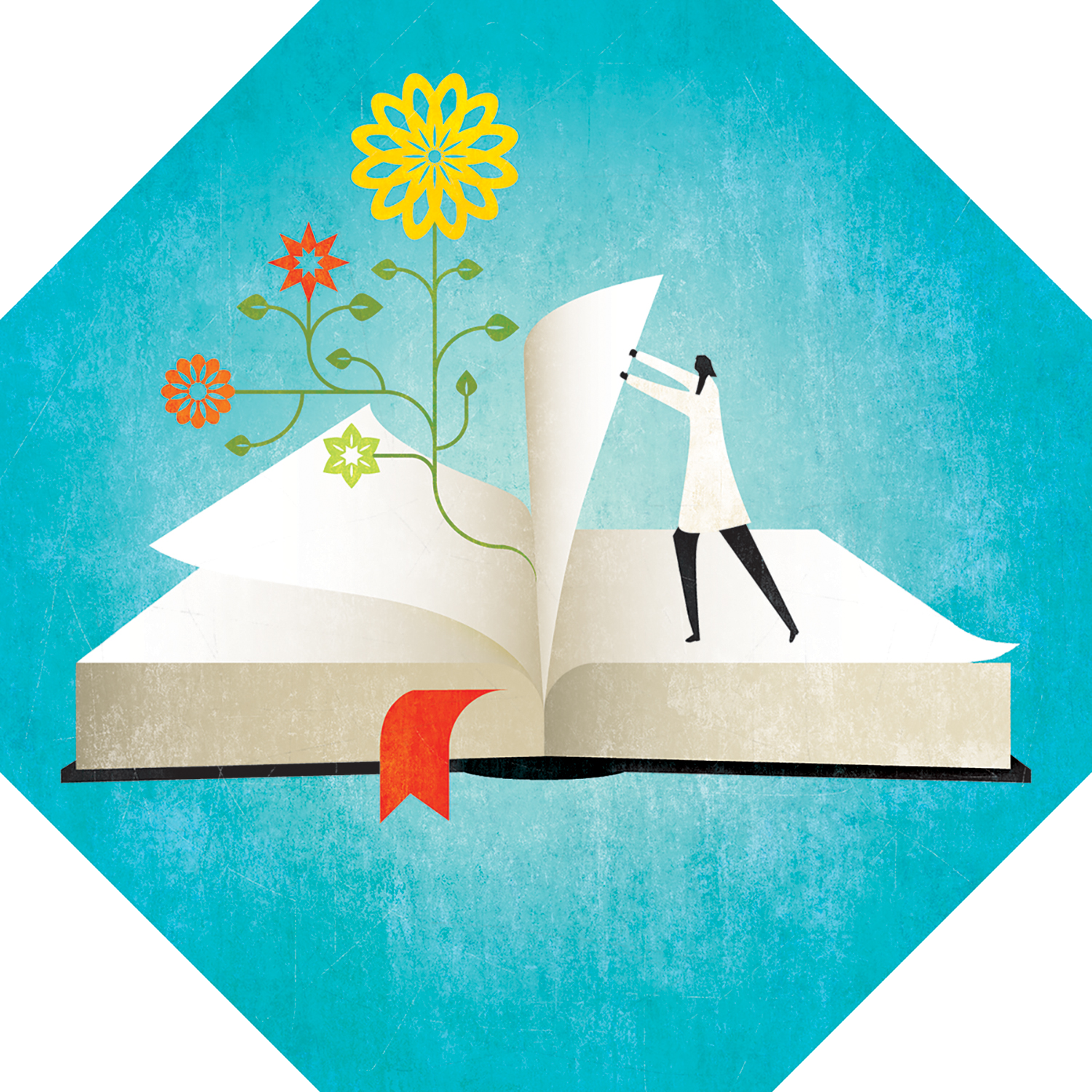
Reverend Thomas Bayes, the patron saint of statisticians, proposed a method for updating prior knowledge with newer experimental results.³ If my daily focus is to be a good driver and a kind person, a single incident of distractedly cutting someone off shouldn’t have sufficient weight to convince me that I am a bad driver. But it is a valuable data point that challenges me to renew my efforts to be more conscientious in my driving and to react charitably when others cut me off. However, if in my search for truth I find patterns in my behavior that do not fit with my view of myself, that evidence needs to be given more weight as I look to make necessary changes.
Professor Carol Dweck at Stanford University has spent 25 years researching how people’s self-concept matters in how they react to disappointment and failure. What do they do with results they don’t like? In one of her seminal studies she gave visual IQ tests to fifth graders and then randomly assigned what type of feedback each was given. In one group the students were told they had performed well and were praised for their intelligence. In the other group the students were told they had performed well and were praised for their hard work.
Next the children were given opportunities to practice different types of questions, and the students who had been praised for their effort overwhelmingly picked harder problems than the students praised for being smart. Dweck’s team then gave the fifth graders a seventh-grade IQ test, which, predictably, they all bombed. But the kids who had been praised for effort performed better than those who had been praised for their intelligence. This makes sense in retrospect, I suppose, given how the different groups had practiced. But then Dweck’s team did something especially clever: they administered the same fifth-grade test the children had all aced earlier. Again, the effort-praised children outperformed the intelligence-praised ones. But here is the surprising thing: the kids praised for being smart actually did worse than they had in the first round of testing. It was almost as if they had grown dumber. Once they no longer believed they were smart, they weren’t.⁴
Dweck has proposed that there are two basic mind-sets: a growth mind-set and a fixed mind-set.⁵ The assumption of those with a growth mind-set is that intelligence, creativity, artistic ability, and other traits are flexible, not frozen, and that one can increase them with practice. The assumption of those with a fixed mind-set is that traits are inherent and cannot be changed. The problem with the fixed mind-set is the belief that a negative outcome is a reflection on a person’s very nature. If I fail an exam, this mind-set says it is because I am not intelligent. In contrast, a person with the growth mind-set sees mistakes and failures as data points that can be used as Reverend Bayes proposed: to update prior knowledge to improve.
Our daughter Abigail C. Nielson (’20) is a talented runner. When she was a freshman in high school she became very focused on her performance. She feared failing because that would mean she wasn’t talented. One particularly hot fall afternoon she chose not to run in a meet because it just seemed too hard for her to run well. In contrast, by her senior year she used each meet, regardless of circumstances, to learn how she could improve. She scored in every race. She ended up as her team’s most consistent runner, placing better at nearly every meet, and she ran in the state championship. During her high school years, Abi had shifted from a fixed mind-set to a growth mind-set.
The good news, which Abi’s experience and Dweck’s subsequent research show, is it is possible to develop a growth mind-set and come to see yourself more as a work in progress who will improve with time and effort. I have seen many of my students develop more of a growth mind-set while learning chemistry. The really “good news”—the gōdspel (Old English), or gospel—is that Christ’s Atonement is very real, and that reality means we are not fixed but can always change and grow.
Hard Things with Help
Many of my own life experiments have been possible because of the people with whom I collaborate. For years our family motto was “Nielsons do hard things.” (You can imagine that our kids have not always been fond of the family motto.) However, we were rescued so many times during our first summer in Africa that we decided to update our motto: “Nielsons do hard things with help from God and others.”
At one point I was traveling in rural Uganda with my friend Kristyn Thompson Allred (BA ’89, MA ’90) to meet the organizer of a women’s co-op. It was raining hard, and the streets were not paved. By the time we arrived at the house, our feet were muddy. But I hesitated to take off my shoes to enter the house. These were fairly expensive walking sandals; I had bought them specifically because I knew I would be walking a lot in Africa that summer. With some anxiety I left them on the front porch.
“For God hath not given us THE SPIRIT OF FEAR, but of POWER, and of LOVE, and of A SOUND MIND.” —2 TIM. 1:7
When I stepped into the house I was astonished to see a paper on the refrigerator that read, “As Sisters in Zion.” Kristyn and I starting singing, and then a lilting voice joined us from the other room. I then noticed a picture of the First Presidency of the Church on the wall. We were in this little slice of heaven. Our new friend greeted us with the traditional and gracious Ugandan greeting “You are welcome.” And we responded by saying, “Thank you”—the opposite of what we do in the United States. This woman, it turned out, was a member of the Mukono Ward, and her husband was the bishop. She told us her story, and we met her kids. It was a glorious hour.
When we left the house, however, my soul sank when I saw that my shoes were gone. All those lovely feelings fled. Then, from around the corner of the house, a neighbor appeared, holding my shoes, now clean. It must have taken her the whole hour to remove the caked-on mud. She simply said, “You are welcome.” Those shoes mattered to me right then only because they had given me the experience of seeing the love of God and the goodness of people. I realized again that any hard thing I have done really has come through the help of God and others.
Recently one of my students came to me distraught over failing a midterm. We discussed several ways she might improve: taking the practice exam as if it were real, forming a study group, teaching the principles to others, and trying more problems. She listened, she adjusted, and she aced the next midterm. Later a different student expressed dismay at her performance on the midterm. The first student overheard her and immediately invited the discouraged classmate to join her study group and learn from the group’s collective experience. With love and help from her peers, my student could succeed in this hard endeavor.
Embrace Experience Without Fear
There will be many times when we have an experience we don’t want. So what can we do? May I suggest (with apologies to Stephen Stills), if you can’t be with the experience you love, Honey, love the experience you’re with.
In 2011 Rabbi Ronnie Cahana had a stroke that affected his brain stem. The effects of the stroke progressed slowly enough that he was aware as his body gradually became paralyzed, starting from his legs and traveling up to just below his eyes. The condition is known as locked-in syndrome. To communicate, family and friends would say the alphabet and he would blink when they got to the right letter, thereby spelling out a message.
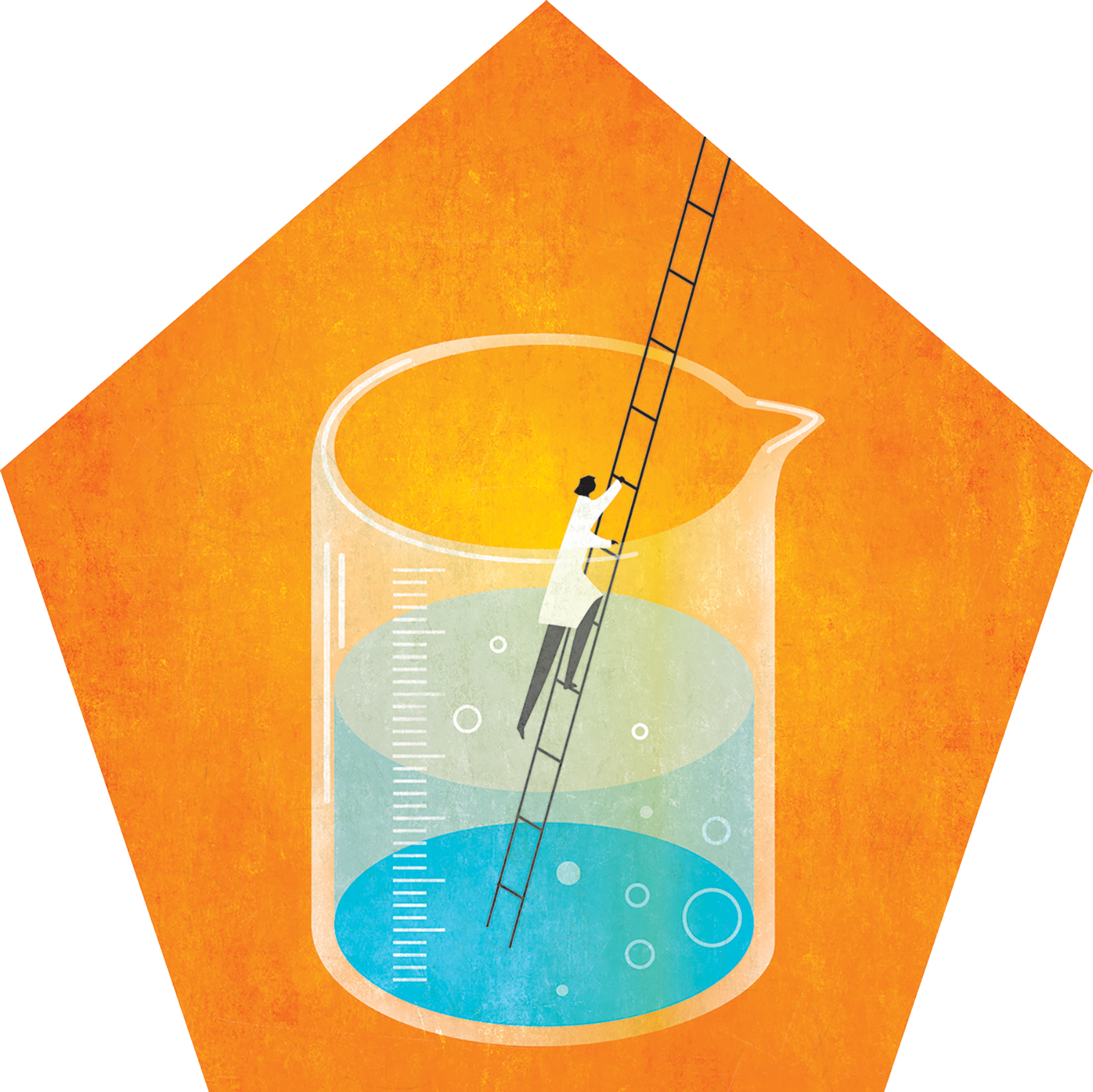
Rabbi Cahana’s reaction to his paralysis was incredible. He spent hours pondering the beauty of God and life, wondering that he could experience such an exceptional state. He said that at night his mind would soar and he would be in motion, “swirling and twirling” above the ground. Blinking his eyes, he wrote letters and sermons sharing his experience. He declared, “I want you to know that this too, is healige (holy in Yiddish). I am in a broken place, but there is holy work to be done.”⁶ His willingness to search for truths in this trial helped him to transcend his misery.
In a TEDMED talk about Rabbi Cahana’s experience, his daughter said that the family cocooned him in love.⁷ He imagined moving his fingers while his loving family physically moved them in therapy. And then his body rekindled. Slowly he began to feel electrical sensations in his arms. He eventually regained enough feeling to breathe on his own and to talk. Every day he witnessed another miracle: as his abilities developed again like a baby’s, he observed it with all the experience of a 57-year-old mind and felt wonder and gratitude. He used his new understanding of truth to grow and was, remarkably, not afraid. The truth had set him free.
“He SUFFERED and DIED for us that we might EXPERIMENT and LIVE.”
If we are not afraid, our life experiments can be tools to learn truth and to make changes. The pioneering chemist Marie Curie believed that “nothing in life is to be feared—it is only to be understood.”⁸ My daughter Catherine A. Nielson (’15) recently took a class studying Mormon women, and she shared with me the story of another pioneer: Jean Rio Griffiths Baker, who, like many new converts from England, had to face an ocean of unknowns to travel to the United States to be with the Saints. In 1851, before she set out to cross the plains to Utah, she wrote in her journal, “The future will most likely be an account of trials, difficulties, and privations such as at present I have no idea of, so as to be able to provide against them. But as you are aware I am not one to go through the world with my eyes shut.”⁹
Paul taught us how to approach life experiences with confidence, using the Savior’s Atonement. One of my favorite scriptures is 2 Tim. 1:7, because of the three gifts from God that are specifically mentioned: “For God hath not given us the spirit of fear; but of power, and of love, and of a sound mind.”
Our earth life is a unique time for exploration, experience, and discovery. Christ Himself showed us the importance of obtaining a body and experiencing life. Why couldn’t Christ just study the plan of salvation and learn what His role was in the Atonement? Couldn’t He just know all things? Instead He chose to come to earth. He experienced the rough waves in a ship and the calming power of the priesthood during a storm. He experienced the love and kindness of His mother and father, the gentleness of the woman who washed His feet with her tears, the gratitude of a leper He had healed, and the grief of friends when Lazarus died. He experienced the tenderness of Mary weeping for Him when she did not find Him in the tomb. He experienced Gethsemane, the cross, and cruelty. It wasn’t enough to know theoretically; He experienced the reality of mortality that He might know and understand what we experience. He suffered and died for us that we might experiment and live.
I share my witness of Jesus Christ and His Atonement. With Christ’s help we can repent; we can change and become the person God wants us to be. Let us use our life experiments to turn theory into reality—with Christ’s help.
This article is adapted from a BYU devotional address given by Jennifer B. Nielson, a BYU professor of chemistry and biochemistry, on March 3, 2015. The full text and video are available at speeches.byu.edu.
NOTES
- Sir Isaac Newton, in David Brewster, Memoirs of the Life, Writings, and Discoveries of Sir Isaac Newton, vol. 1 (Edinburgh: Thomas Constable and Company, 1855), p. 142.
- Howard W. Hunter, “Fear Not, Little Flock,” BYU devotional address, March 14, 1989.
- See Thomas Bayes, “An Essay Towards Solving a Problem in the Doctrine of Chances,” Philosophical Transactions of the Royal Society of London 53 (1763): pp. 370–418.
- See Claudia M. Mueller and Carol S. Dweck, “Praise for Intelligence Can Undermine Children’s Motivation and Performance,” Journal of Personality and Social Psychology 75, no. 1 (1998): pp. 33–52.
- See Carol Dweck, Mindset: The New Psychology of Success (New York: Random House, 2006).
- Ronnie Cahana, quoted in Shayne Vitemb, “Rabbi Ronnie Cahana, Broken, but with Holy Work to Do,” Jewish Herald-Voice, May 31, 2012.
- See Kitra Cahana, “My Father, Locked in His Body but Soaring Free,” talk given at TEDMED 2014, San Francisco, https://tedmed.com/talks/show?id=292955.
- Marie Curie, quoted in Barbara Goldsmith, Obsessive Genius: The Inner World of Marie Curie (New York: W. W. Norton, 2005), p. 15.
- Kenneth W. Godfrey, Audrey M. Godfrey, and Jill Mulvay Derr, Women’s Voices: An Untold History of the Latter-day Saints, 1830–1900 (Salt Lake City: Deseret Book, 1982), p. 221; see also pp. 203–21.


